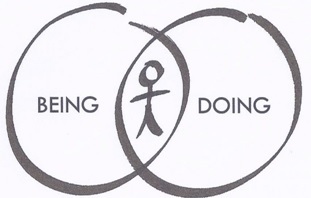I am a human being, not a human doing. Don’t equate your self-worth with how well you do things in life. You aren’t what you do. If you are what you do, then when you don’t…you aren’t. ~Dr. Wayne Dyer
I recently spent several day s in the hospital; and that was a stark reminder that I really am a human being and not a human doing. For several days I couldn’t do anything; I could only be.
s in the hospital; and that was a stark reminder that I really am a human being and not a human doing. For several days I couldn’t do anything; I could only be.
I was intrigued and probably a little entertained by the gentleman in the room next door at the hospital who spoke rather loudly. He had recently retired (I’m thinking an early retirement) from being a stockbroker. He said that as soon as he retired his cholesterol went down, his blood pressure went down, etc. I don’t know why he was in the hospital other than his stay was more in terms of weeks not days. I’m guessing that it may have had something to do with his years of doing that was now taking a toll.
This reminded me of a board member of a client who shared her story with me. She was the CEO of a large, fast-paced organization. Her work was her life. Until one day when she found herself in the hospital with abdominal issues that could have been deadly. That was her wake-up call to make a change. She resigned from her position and took time off to just “be” for awhile. I can still remember her telling me that she didn’t even know where her own vacuum cleaner was because she spent that little time at home; and yes, she had a husband a daughter.
Why do we focus so much on doing? Maybe it’s because we’ve come to associate our own self-worth with how well we do things; and that may be especially true for leaders. As Dr. Wayne Dyer said, “I am a human being, not a human doing. Don’t equate your self-worth with how well you do things in life. You aren’t what you do. If you are what you do, then when you don’t…you aren’t.”
The Cooper Clinic has worked with executives since it opened in North Dallas nearly 40 years ago. Founder Kenneth Cooper contends that there is just as much stress in a CEO’s job as there has always been. What has changed is technology, which allows CEOs to have constant digital connection with their jobs and makes it difficult to unplug. “I have patients that answer that thing all night,” he says. “They need to turn off the phone and avoid taking work home. We have CEOs who are in horrid shape because they have no work-life balance and are suffering because of it.”
What’s really fascinating is there are numerous studies that have concluded that more time at work [i.e., stress] doesn’t make us any more productive. Quoting from a recent New York Times article, “Spending more hours at work often leads to less time for sleep and insufficient sleep takes a toll on performance. In a study of nearly 400 employees, published last year, researchers found that sleeping too little—defined as less than six hours each night—was one of the best predictors of on-the-job-burn-out. A recent Harvard study estimated that sleep deprivation costs American companies $63.2 billion a year in lost productivity.
So I ask again, why do we put so much value and self-worth on doing? It’s the time of year to be contemplating New Year’s Resolutions. Maybe we could all consider making a resolution to focus more on being and a little less on doing in 2015.